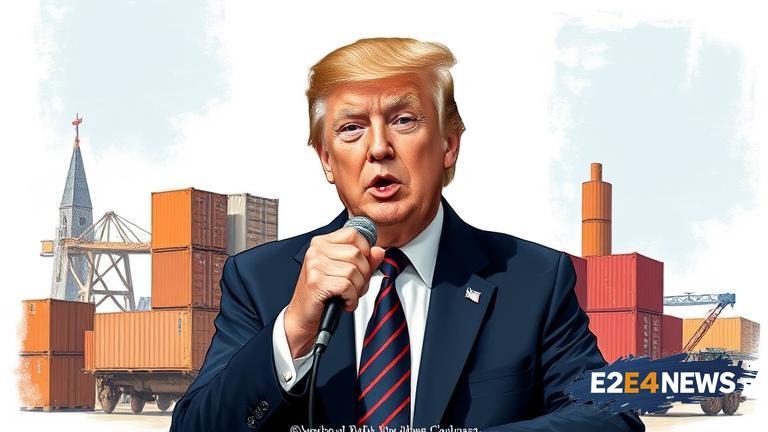The United States has taken a strong stance against countries that impose digital taxes on American tech firms, with President Donald Trump warning that such measures will be met with tariffs. In a recent statement, Trump emphasized that America will not be treated as a ‘piggy bank’ or a ‘doormat’ by other nations. The US has been vocal about its opposition to digital taxes, which it believes unfairly target American companies such as Google, Facebook, and Amazon. Trump’s threat of tariffs is seen as a significant escalation of the trade tensions between the US and other countries, particularly in Europe. The digital tax issue has been a point of contention between the US and other nations for some time, with many countries arguing that American tech firms do not pay their fair share of taxes. The US, on the other hand, believes that digital taxes are discriminatory and violate international trade agreements. The Trump administration has been working to negotiate a global agreement on digital taxes, but so far, no deal has been reached. In the absence of a global agreement, several countries, including France, the UK, and Italy, have introduced their own digital tax measures. The US has responded by threatening tariffs on these countries, which could lead to a trade war. The tariffs could have significant implications for global trade and the economy, and many experts are warning of a potential downturn. The digital tax issue is complex and multifaceted, with many different stakeholders and interests involved. The US tech industry is a significant contributor to the global economy, and any tariffs or trade restrictions could have far-reaching consequences. The European Union has been a strong proponent of digital taxes, arguing that they are necessary to ensure that tech firms pay their fair share of taxes. However, the US believes that digital taxes are unfair and could harm American businesses. The Trump administration has been working to build a coalition of countries that oppose digital taxes, but so far, it has had limited success. The issue is likely to continue to be a point of contention between the US and other countries, and it remains to be seen how it will be resolved. The US has a long history of using tariffs as a tool of trade policy, and it is likely that the threat of tariffs will be taken seriously by other countries. However, the use of tariffs can also have unintended consequences, such as higher prices for consumers and reduced economic growth. The digital tax issue is just one of many trade-related issues that the US is currently grappling with, and it is likely to remain a major point of contention in the coming months and years. The US is also engaged in trade negotiations with several other countries, including China, and the outcome of these negotiations could have significant implications for the global economy. The use of tariffs as a tool of trade policy is not without controversy, and many experts are warning of the potential risks and unintended consequences. Despite these risks, the Trump administration appears to be committed to using tariffs as a means of achieving its trade policy goals. The digital tax issue is a complex and multifaceted one, and it is likely to require a nuanced and sophisticated solution. The US and other countries will need to work together to find a solution that balances the need to ensure that tech firms pay their fair share of taxes with the need to avoid harming American businesses and the global economy. The outcome of this issue will have significant implications for the future of global trade and the economy, and it is likely to be closely watched by experts and policymakers around the world. The US has a significant stake in the outcome of this issue, and it is likely to continue to play a major role in shaping the global debate on digital taxes. The Trump administration’s threat of tariffs is a significant escalation of the trade tensions between the US and other countries, and it is likely to have far-reaching consequences. The digital tax issue is just one of many trade-related issues that the US is currently grappling with, and it is likely to remain a major point of contention in the coming months and years.
